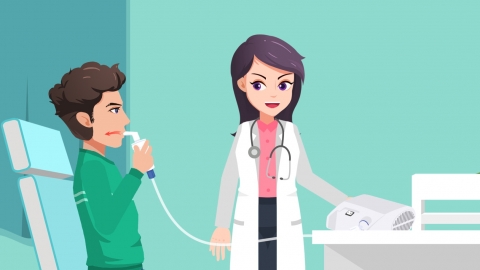Is nebulization required for influenza A?
Generally speaking, "swine flu" refers to influenza A. Whether influenza A requires nebulization therapy depends on the severity of the patient's respiratory symptoms and the condition of their sputum. If symptoms are severe, affecting respiratory function, or if sputum is difficult to expel, nebulization may be necessary. Conversely, if symptoms are mild and sputum can be easily coughed up, nebulization may not be required. If discomfort occurs, prompt medical attention is recommended. A detailed explanation is as follows:

When patients with influenza A exhibit severe coughing and expectoration, with thick and sticky sputum that is difficult to expel, or even airway obstruction causing difficulty breathing, wheezing, or bronchospasm—symptoms indicating lower respiratory tract involvement—nebulization therapy is typically required. Nebulization delivers medication in the form of fine particles directly to the respiratory tract, helping to thin and loosen sputum, promote its expulsion, relieve bronchospasm, and reduce airway inflammation, thereby improving respiratory function and alleviating symptoms.
If a patient's symptoms after contracting influenza A are mild, such as only mild fever and cough, with dry cough or minimal, thin sputum that is easily expelled, and no significant wheezing or difficulty breathing (indicative of lower respiratory tract involvement), nebulization therapy is generally unnecessary. In such cases, rest, increased fluid intake, and appropriate symptomatic medications can effectively alleviate the illness.
It is important to maintain good personal hygiene, wash hands frequently, and cover the mouth and nose with tissues or the elbow when coughing or sneezing to prevent spreading the virus through droplets.








